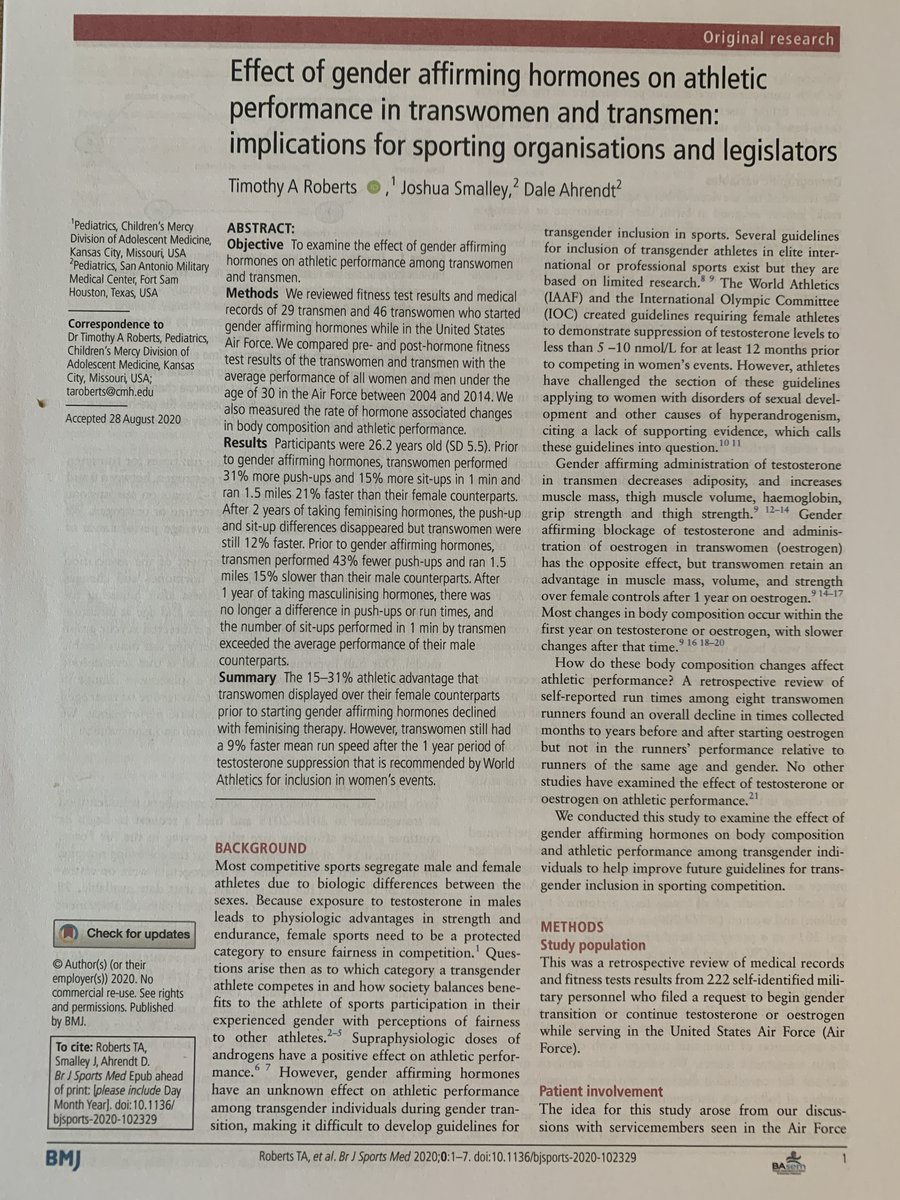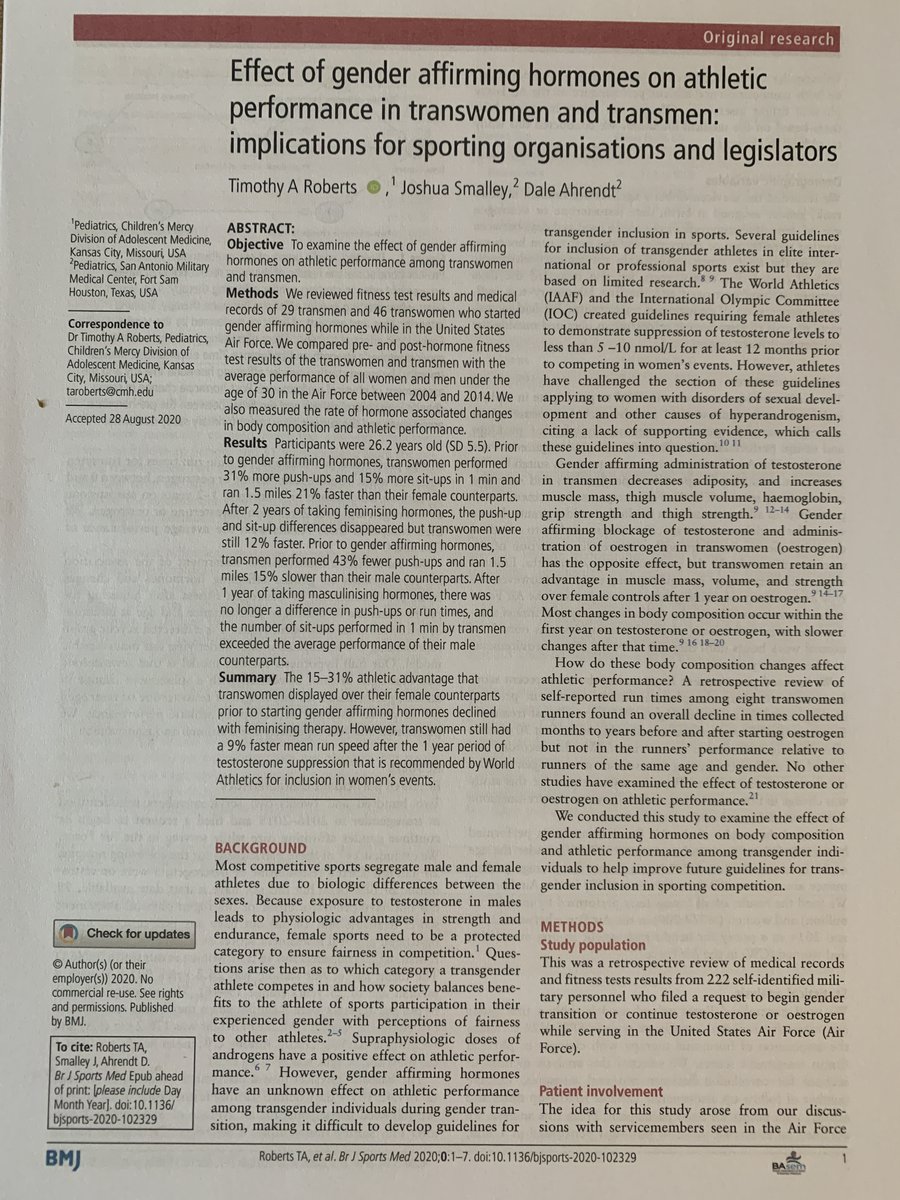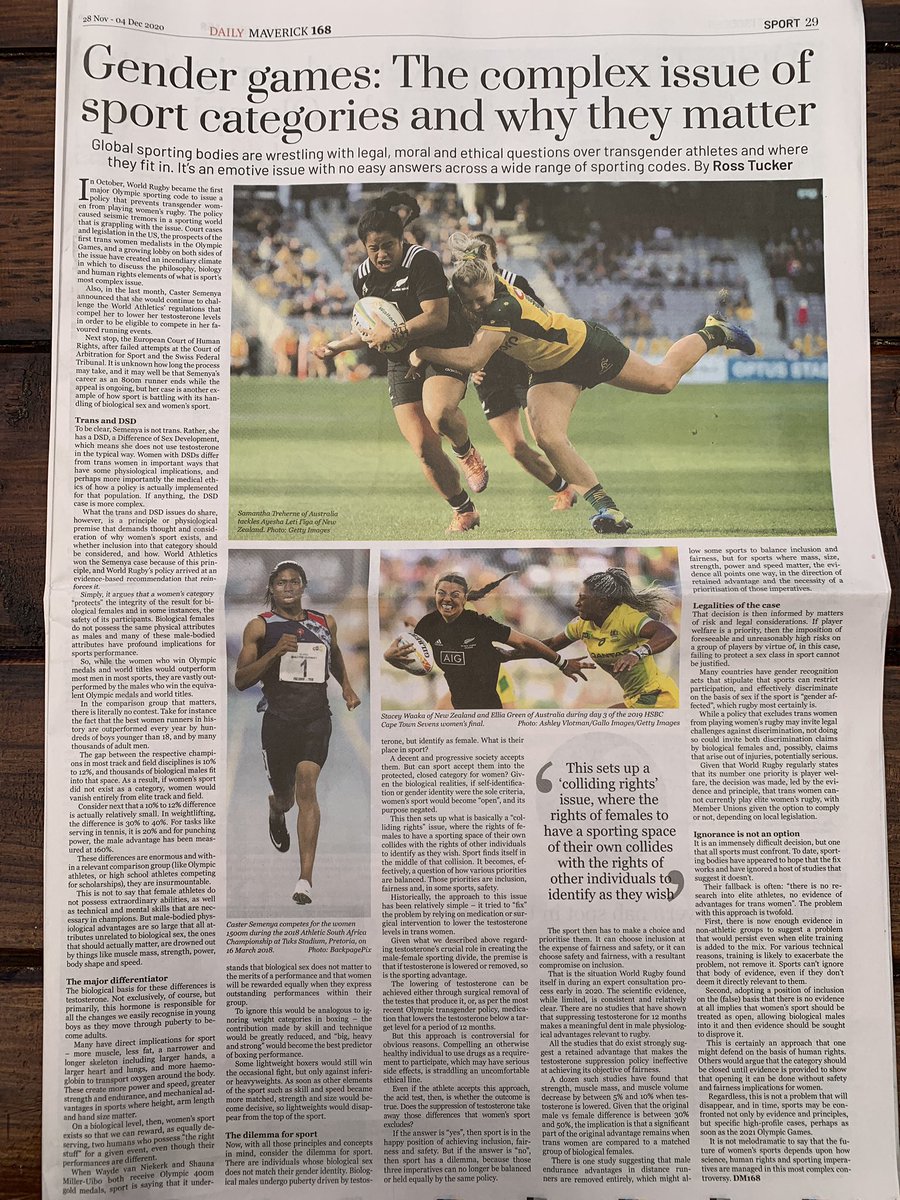
Male advantage due to testosterone? The first crucial question in the debate, followed by a remarkably bad or dishonest assessment of the evidence to totally rewrite the physiology of male vs female performance. Here’s the clip, then a handful of tweets to correct the falsehoods
Veronica Ivy describes a testosterone-performance link as a “nonsense argument”, but she has to first deceptively reframe the issue to do this, & sidestep physiological reality. Note the question - Male VS Female difference, so it’s male compared to female. Not “within” M or F
Her response is that endogenous T has “zero impact on athletic performance”. Then she tries to explain this as a revolutionary breakthrough in knowledge. It’s nothing of the sort. What she does is to take evidence WITHIN male and WITHIN female, & pretend its relevant BETWEEN them
So if we look at a men’s athletic cohort, & a women’s athletic cohort, we find poor relationships between performance and T level. This is obvious, though. Why? Because they’re homogenous & similar for that characteristic already. That is, Men have already been androgenised, and
…women have not been androgenised by the effects of T during development. She is making a classic error of selection here. If you take a group that already has (or lacks in the case of women) an attribute, that attribute becomes less important for the outcome of interest.
Easiest example - we all know that VO2max is crucial for endurance runners, right? But within a group of Olympic marathon runners, it has lousy predictive value for performance. Why? Because everyone from that elite marathon group has already been selected out for that attribute!
Similarly, height is clearly important for basketball, but WITHIN the NBA, height matters much much less, because it’s a characteristic possessed by all the competitors too. Attribute X gets you through the door. But once in, all the other attributes matter, & what you share with
…everyone else is no longer decisive. You’d be an idiot to conclude that VO2max or height don’t matter for endurance performance and basketball on the basis of your assessment of elite runners or NBA players only. You have to look at the whole population & find those who lack it
When you do that, then hey, look, a high VO2max is a prerequisite to be an Olympic marathoner. Now, go back to the question - does T affect performance? It’s deeply misleading to force the answer into a “male only” and “female only” group. The key here is Male COMPARED TO female
That’s what Ivy can’t and won’t address, she has to avoid it, because it’s so clear that performance differences BETWEEN M and F exist in large part because of physiological differences that arise due to T’s androgenizing effects in male bodies. Pretending otherwise is deceitful
This leads us to the next important concept that she’s misleading viewers about. The level of T is not the point, it’s the effects of T on the physiology. That’s important for two reasons. One, T levels become a red herring. Two, it begs questions of ‘correcting’ the advantage
So, had he been given a legitimate answer to this question about T and performance, @smerconish’s next question here might have been “OK, and if T creates the advantages, then can it be reduced in order to remove the advantages?”. That’s what sports policy has tried to do before
@smerconish Here, one must look to data, and ask whether the physiological attributes that are clearly distinct as a result of T in M vs F bodies, things like muscle mass, strength, power etc, are removed or reduced when T is suppressed? The answer, from dozens of studies, is clearly, no.
@smerconish That is, while T suppression causes some reduction in various ‘systems’, it fails to reduce them sufficiently for parity. So, advantages persist. That’s the root of unfairness & safety concerns for women’s sport. At this point, some may depart and assess that evidence differently
You may say it doesn’t matter, that inclusion trumps those 2 imperatives. That’s a matter of assessment, philosophy etc. I don't agree, I believe women have a right to a protected category & what is being “protected against” is created by androgens like T, despite Ivy’s mythology
What really can’t persist is the kind of nonsense rewriting of physiology that @sportisaright engages in here. It’s not even “weeds”. If you’re in the media, you have to call out this kind of misinformation,irrespective of motive. Opinions? Fine. But we don’t get to make up facts
• • •
Missing some Tweet in this thread? You can try to
force a refresh






